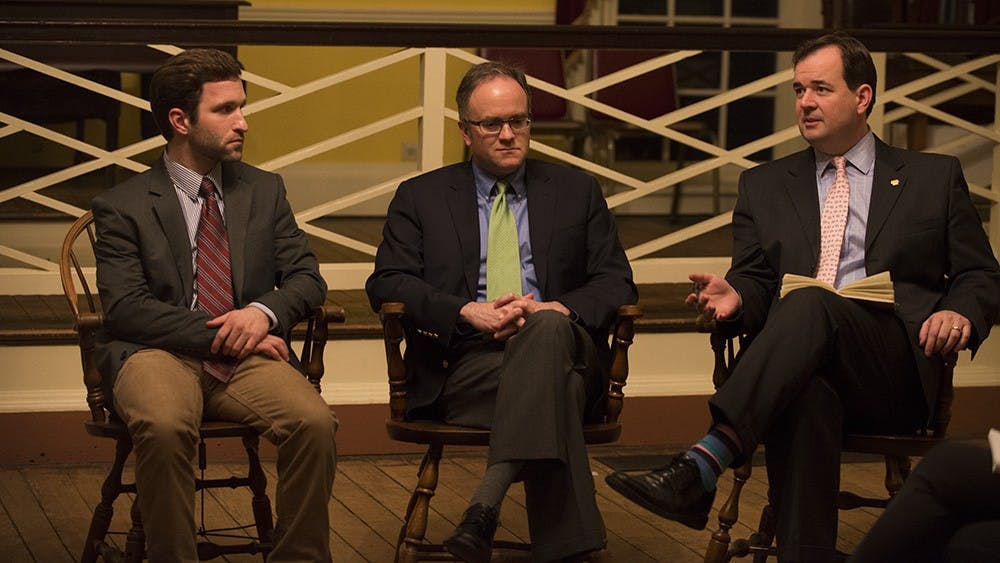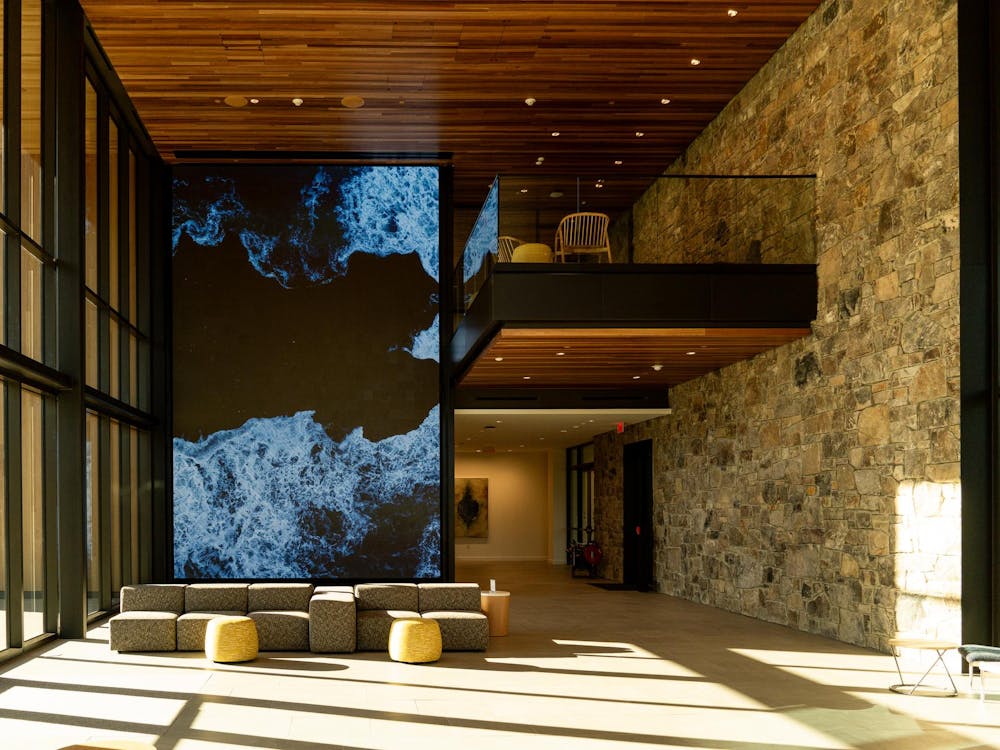Three University groups joined together to host a panel discussion Wednesday night in Jefferson Hall on whether the United States should actively promote democracy abroad.
The panel was a collaboration of the Democracy Network, a student-run organization promoting domestic democracy; the International Relations Organization, a student-run organization focusing on international affairs; and the Presidential Precinct, a partnership between the University, William & Mary and Virginia historical sites which aims to generate dialogue among young leaders from around the world.
“This was kind of the brainchild between my organization, the IRO, and the Democracy Network,” said IRO President Kate Kingsbury, a third-year College student. “We wanted to address more political theory than usual, and they wanted to address more international relations, so it was kind of the perfect partnership in that sense.”
Panelists included Politics Prof. John Owen, Montpelier Foundation Vice President Douglas Smith and Politics doctoral candidate Michael Poznansky. The panel was proctored by Assoc. Politics Prof. Evan Pivonka.
Kingsbury described the panel as an opportunity to discuss the highly-debated topic of political intervention.
“There’s been a lot of news of potential U.S. interventionism,” she said. “We tend to have gut reactions to those kind of situations, which is warranted, but I think it is important to know the political theory behind why we might intervene and why democracies are better suited for some areas than others.”
Poznansky opened the discussion by outlining the democratic peace theory, or the idea democratic countries are less likely to wage war against each other. This concept, he said, has led many policy makers to advocate for the active promotion of democracy abroad.
“The reason why it could be dangerous to misappropriate this idea is that democratic peace theorists … are speaking primarily about what relations are like between existing democracies,” Poznansky said. “Democratic peace is not a theory of regime change, and therefore, some proponents have argued that when some states are democratizing, they may be more belligerent and more likely to initiate conflict than mature democracies and even mature autocracies.”
Smith spoke on historical outcomes of the active promotion of democracy by the United States. After World War II, the United States tried to “cut-and-paste and export” centuries-old American-style democracy onto countries not ready for it — and was not particularly successful in doing so.
“Should we be exporting American democracy?” Smith said. “I’d say the answer’s pretty easy: no. … But should we promoting the values and the constitutional principles [of American democracy]? I’d say that’s a resounding yes. … We do have the ability and the impetus to be promoting rights-based forms of self-representation [and] citizenship.”
Owen spoke about the conditions necessary to create the stability needed to form a successful democracy.
“It seems having a stable middle class is a great boon to developing a sustainable democracy,” he said. “There has to be centrist political parties … [but] that is not the case in a lot of places right now. … This is highly conditional — you can have free elections and you can have the losers mobilize and start a civil war.”
Closing the panel was discussion on whether the United States supports Crimea’s recent referendum to succeed from Ukraine and join Russia.
While questioning the validity of the results, Poznansky also said, “I don’t want to quote from The Onion. … there was this article [titled ‘Crimean voters excited to exercise democracy for the last time.’] … The point raised is an interesting one: voting into a regime that’s not democratic.”
In response to this, Owen spoke of the dangers of the Russian-speaking Crimean majority leaving Ukraine, which could lead other ethnic groups tied to geographic territories wanting to create their own democratic countries.
“Gosh, Russia has a Chechnya minority that would love to leave [Russia],” he said. “Let them have a vote and they’ll split off.”
Third-year College student Daniel Rosenfeld, vice director of discussion for the Democracy Network, said he was pleased with the panel.
“I really like how they brought up Ukraine and Crimea,” he said. “It’s a really tricky issue. … I was so astonished at how many people turned out. …The room was full.”





